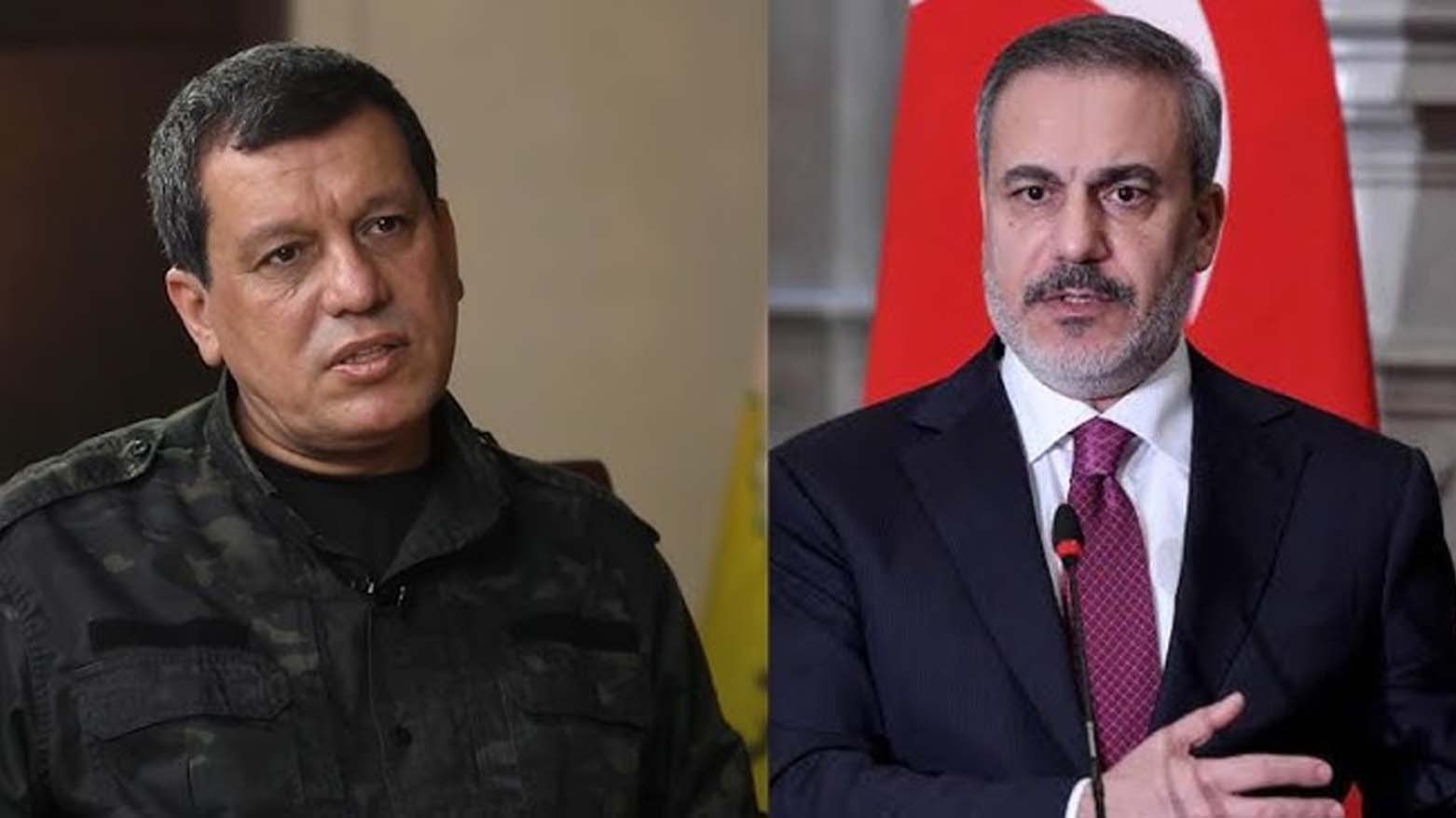Turkey's Fidan Accuses YPG of Occupying Syrian Land as SDF Commander Reaffirms Peace Deal
Turkish FM Fidan accuses YPG of occupying one-third of Syria, while SDF Commander Mazloum Abdi reaffirms commitment to March 10 peace deal and calls for political integration.

Erbil (Kurdistan24) – Turkish Foreign Minister Hakan Fidan has accused the Kurdish-led People’s Protection Units (YPG) of keeping one-third of Syrian territory “under armed and forced occupation,” even as Syrian Democratic Forces (SDF) Commander Mazloum Abdi reaffirmed his group’s commitment to the March 10 agreement and called for safeguarding the rights of all communities.
In an interview with Egypt’s MBC Masr television, Fidan delivered sharp criticism of both the YPG and Israel, portraying them as destabilizing forces in the region. Responding to a question on whether Israel’s activities extended beyond Gaza, he asserted: “Israel has now turned expansionism into an established policy. This is something we, as regional countries and as the international community, must address and take measures against. It is not good for Israel, nor for the region.”
Fidan accused Israel of exploiting the political and economic weaknesses of neighboring states to secure its position while undermining any regional vision of shared development and stability. “When indirect destabilization fails, Israel resorts to military intervention. Its occupation in Lebanon, operations in Syria, attacks on Iran, continuous targeting of civilians in Yemen, destruction of infrastructure, and the recent strike on Qatar all reveal that Israel has embraced regional expansionism as a strategy that goes beyond the Palestinian question,” he declared.
Turning to the situation inside Syria, Fidan noted that the country continues to grapple with complex crises following the collapse of the previous regime. “Since December 8, when the new leadership assumed power, there has been a fundamental shift. Yet Syria’s historical and contextual challenges are vast, and the new administration is occupied with trying to address them,” he remarked.
Fidan stressed that a peaceful resolution to Syria’s internal issues must be found through a system that treats all citizens as equals and avoids further bloodshed. He argued, however, that the YPG remains a central obstacle. “The YPG is holding one-third of the country under armed and forced occupation,” he said, while also acknowledging that problems persist in the country’s south and coastal regions. He pointed to Syria’s devastated infrastructure and finances after years of war under the previous regime, noting that reconstruction remains an urgent necessity.
In parallel to Fidan’s remarks, Mazloum Abdi, commander-in-chief of the Syrian Democratic Forces, used a military council meeting to emphasize his group’s commitment to the March 10 agreement. Speaking during the meeting, Abdi underlined the importance of maintaining the fragile ceasefire in northeast Syria (Western Kurdistan), stating, “We reaffirm our commitment to the March 10 agreement, and it is essential to preserve the ceasefire in eastern Syria.”
Abdi went further, announcing his readiness to enter negotiations on integrating SDF units into the Syrian army and to engage directly with the relevant councils overseeing such talks. He reiterated that a political solution remains the best path to safeguarding Syria’s stability and protecting its people. “The political solution is the best option to preserve Syria’s stability and the well-being of its citizens,” he said, urging guarantees for the rights of all Syrian components within any future settlement.
The juxtaposition of Fidan’s rhetoric with Abdi’s position highlights the competing narratives shaping the Syrian conflict. While Turkey frames the YPG as a destabilizing occupier, the SDF leadership continues to advocate for political negotiations, military integration, and the protection of diverse communities. The tension underscores the fragile balance between external accusations and local efforts to sustain dialogue and stability in a country still reeling from years of war.